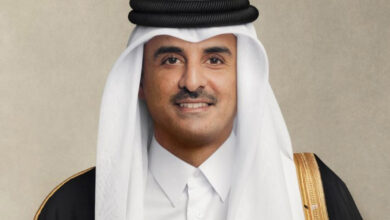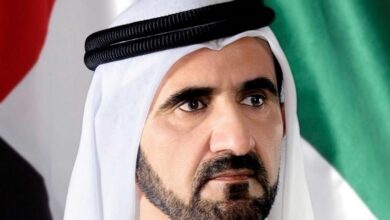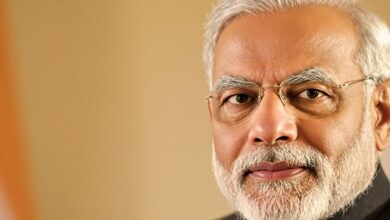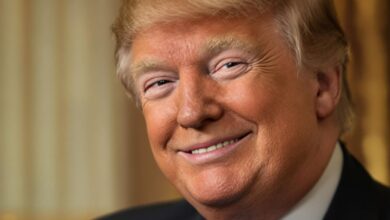Emmanuel Macron Net Worth: A Deep Dive into the French President’s Financial Landscape
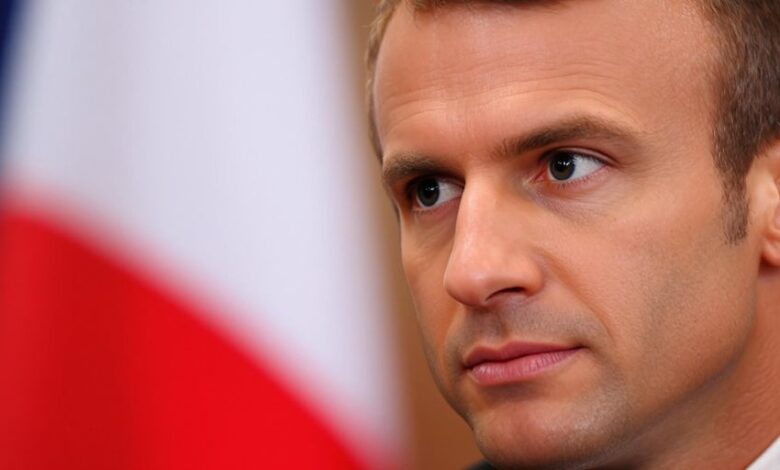
Emmanuel Macron, the 25th President of France, has been a prominent figure in both French and global politics. As a leader known for his centrist views and economic reforms, Macron’s financial standing has often been a topic of interest. This article explores his net worth, alongside his personal and political journey, shedding light on the financial landscape of the French President.
Key Takeaways
- Emmanuel Macron’s journey from a banker to the President of France has significantly influenced his financial status.
- His political career began with the formation of the centrist party, En Marche, leading to his presidential win in 2017.
- Macron’s financial portfolio includes assets, investments, and real estate, contributing to his overall net worth.
- Brigitte Macron, his wife, plays a significant role in both his personal life and public image.
- Macron’s economic policies, including tax reforms, have been both applauded and criticized, impacting his popularity.
Emmanuel Macron’s Early Life and Career

From Amiens to the Élysée
Emmanuel Macron’s journey from Amiens to the Élysée Palace is nothing short of fascinating. Born in the northern French town of Amiens, Macron grew up in a family that valued education and intellectual pursuits. His parents, both in the healthcare field, encouraged his academic ambitions. As a young boy, Emmanuel Macron was quite the bookworm, often found with his nose buried in a novel or engaged in deep discussions about philosophy and politics. This early love for learning set the stage for his future endeavors.
Macron’s Education and Early Ambitions
Macron’s educational path was marked by excellence and ambition. He attended the prestigious Lycée Henri-IV in Paris before enrolling at the elite École Nationale d’Administration (ENA), a breeding ground for French political leaders. During his time at ENA, Macron honed his skills in public administration, laying the groundwork for his future political career. But even as a student, he was known for his charisma and keen intellect, qualities that would later propel him to the forefront of French politics.
The Rise of a Political Star
Before diving into politics, Macron made waves in the financial world. He worked as an investment banker at Rothschild & Cie Banque, where he played a pivotal role in major deals that showcased his sharp analytical mind and knack for negotiation. But it wasn’t long before his political ambitions took center stage. Macron’s entry into politics was marked by his appointment as the Deputy Secretary-General at the Élysée, followed by his role as France’s economy minister. These positions allowed him to craft and implement policies that resonated with his vision for a modern France. His rapid ascent in the political arena was a testament to his determination and ability to connect with people across the political spectrum. As Emmanuel Macron young, he was already a force to be reckoned with, setting the stage for his eventual rise to the presidency.
The Journey to the French Presidency
Macron’s Political Beginnings
Emmanuel Macron’s journey to becoming the 25th President of France was a whirlwind of ambition and strategy. Before Macron, France had seen a variety of leaders, each bringing their own flair to the presidency. So, who were the last five presidents of France? Before Macron’s rise in 2017, François Hollande held the office. Before him, Nicolas Sarkozy, Jacques Chirac, François Mitterrand, and Valéry Giscard d’Estaing had their turns at shaping the French political landscape.
Macron’s political career didn’t start in the traditional way. Unlike many who climb the political ladder through years of elected positions, Macron’s entry was somewhat unconventional. He served as the Minister of Economics, Industry, and Digital Affairs under Hollande, which gave him a taste of the political scene. But it wasn’t until he created his own centrist political movement, En Marche, that people really started to take notice.
The Formation of En Marche
In 2016, Macron launched En Marche, a movement that was both bold and risky. The idea was simple yet revolutionary: a party that transcended traditional left-right divides. Macron believed in bridging the gap between conservatives and progressives, aiming to unite people around common goals rather than partisan differences. This fresh approach resonated with many French citizens who were tired of the usual political squabbles.
The formation of En Marche was a game-changer. It wasn’t just a new party; it was a new way of thinking about politics. Macron’s vision was clear, and he wasted no time in spreading his message across France. His charisma and ability to connect with people from all walks of life played a crucial role in gaining widespread support.
Winning the 2017 Election
The 2017 presidential election was a pivotal moment in Macron’s career. Running as a political outsider, he faced tough competition from seasoned politicians. Yet, his centrist platform, which borrowed elements from both the left and right, appealed to a broad spectrum of voters. Macron’s message of hope and renewal struck a chord with a nation yearning for change.
As the election progressed, Macron’s popularity surged. His campaign was dynamic, leveraging social media and grassroots efforts to reach as many people as possible. When the results came in, Macron emerged victorious, becoming the youngest president in French history. His win was not just a personal triumph but a signal of a new era in French politics.
Now, how many years can a French president serve? Macron, like his predecessors, is subject to the rules that allow a president to serve a five-year term, with the possibility of re-election for a second term. This means a president can potentially serve for up to ten years if re-elected. Macron’s victory in 2017 marked the beginning of a new chapter, one that continues to unfold as he navigates the challenges and opportunities of leading France.
Inside Emmanuel Macron’s Financial Portfolio
Assets and Investments
Emmanuel Macron, the current President of France, has a financial portfolio that’s quite the topic of discussion. His net worth is estimated to be around $31.5 million, a significant sum for a political leader. Before stepping into the political spotlight, Macron had a successful career in banking, which laid the foundation for his wealth. His time at Rothschild & Co., a prestigious investment bank, was particularly lucrative, contributing significantly to his fortune. Macron’s financial acumen isn’t just limited to his professional endeavors; he also has various investments that help maintain and grow his wealth. While details about his specific assets are often kept under wraps, it’s clear that Macron’s financial strategies are as calculated as his political moves.
Macron’s Salary as President
Being the President of France comes with its own set of perks, including a decent salary. As President, Macron earns a salary that aligns with the responsibilities of leading a country. However, compared to his previous earnings in the private sector, this salary might not seem as impressive. It’s crucial to note that Macron’s current role isn’t about financial gain but about serving the nation. His salary as President is public knowledge, reflecting transparency in his financial affairs.
Real Estate Holdings
Macron’s real estate holdings are another aspect of his financial portfolio that garners attention. He and his wife, Brigitte Macron, have been known to own properties in some of France’s most desirable locations. The couple’s lifestyle reflects a blend of luxury and practicality, evident in their choice of real estate. While the specifics of their property investments aren’t fully disclosed, it’s understood that their holdings contribute significantly to Macron’s overall net worth. The age gap between Emmanuel Macron and his wife, Brigitte, often sparks curiosity, but it doesn’t overshadow their shared interests and investments, particularly in real estate. This aspect of their lives is a testament to their partnership, both personal and financial.
Overall, Emmanuel Macron’s financial landscape is a mix of savvy investments, strategic career moves, and a lifestyle that balances public service with personal prosperity. His journey from a banker to the President of France is as much about his financial decisions as it is about his political ones.
The Influence of Brigitte Macron
A Love Story Beyond Politics
Brigitte Macron’s journey with Emmanuel Macron is nothing short of a captivating tale. Their relationship began in the most unconventional way, with Brigitte being Emmanuel’s high school drama teacher. Despite the age gap and societal norms, their love blossomed into a strong partnership. Their story is a testament to how love can transcend boundaries, and it has been a significant part of Macron’s personal and political life. Brigitte’s influence on Emmanuel is evident in his speeches and public appearances, where her presence often adds a touch of warmth and sincerity.
Brigitte’s Role in Macron’s Life
Brigitte Macron is not just the First Lady; she’s Emmanuel’s confidante and advisor. Her role extends beyond the traditional duties of a First Lady. She’s known for her active involvement in various social causes and her support for education and the arts. Brigitte’s insights and perspectives have been instrumental in shaping Emmanuel’s views and decisions. She’s often seen by his side during official engagements, providing a sense of stability and support. Her influence is subtle yet profound, as she helps balance the pressures of political life with personal insights.
Public Perception of the First Lady
Brigitte Macron has always been in the public eye, and her unique style and grace have made her a subject of fascination. The public’s perception of her varies, with some admiring her elegance and others scrutinizing her unconventional marriage to Emmanuel. Despite the mixed opinions, Brigitte remains a respected figure in France. Her ability to connect with people and her genuine interest in social issues resonate with many. While she may not be everyone’s cup of tea, her influence on Emmanuel and her role as First Lady are undeniable, making her a significant figure in the French political landscape.
Macron’s Economic Policies and Their Impact

Tax Reforms and Controversies
Emmanuel Macron’s approach to taxes has always been a hot topic. He’s been pretty clear about not wanting to hike taxes on the wealthy, which has stirred quite a debate. Back when François Hollande suggested a 75% tax on high earners, Macron wasn’t having it. He even likened it to something you’d see in Cuba. Instead, he’s more about stopping tax dodgers. During his 2017 campaign, he pushed for lowering the corporate tax rate from 33.3% to 25% and wanted to cut the wealth tax down to just high-value properties. He also thought local residence taxes were unfair and wanted to scrap them for a whopping 18 million households. But, you know, not everyone’s on board with his ideas. Critics say his tax policies favor the rich, leaving others to shoulder the burden.
The 35-Hour Work Week Debate
Ah, the 35-hour work week—one of those things that’s just so French. Macron’s had a bit of a rollercoaster relationship with it. Initially, he was all for scrapping it, thinking it was holding back France’s economic mojo. But over time, he’s softened his stance. Now, he’s more about keeping the 35-hour week but giving companies some leeway. He’s suggested letting them negotiate work hours and overtime pay with employees. It’s like he’s trying to have his cake and eat it too—maintaining a staple of French work culture while trying to boost competitiveness.
Macron’s Vision for France’s Economy
Macron’s got big plans and even bigger dreams for France’s economy. He’s a free market guy at heart, always talking about cutting down the public deficit. He wants to make France a powerhouse in the European Union, even supporting trade agreements like CETA between Canada and the EU. He’s been vocal about creating a shared budget for the Eurozone, which might ruffle some feathers. But for Macron, it’s all about making France and Europe stronger together. As 2025 kicks off, the economy faces unprecedented risks, and Macron’s strategies will be crucial in navigating these choppy waters. Whether you love him or hate him, there’s no denying that Macron’s economic policies have left a mark on France and beyond.
Emmanuel Macron’s International Relations
Key Diplomatic Achievements
When it comes to international relations, Emmanuel Macron has been quite the busy bee. His approach has often been described as pragmatic and sometimes bold. Macron has made it clear that maintaining strong ties with the United States is a priority, even when he doesn’t agree with everything they do. Back in 2016, he was cautious about the Transatlantic Trade and Investment Partnership, but he didn’t shut the door completely, emphasizing the need for a strong link with the US. Macron’s diplomatic efforts also extend to Europe, where he’s been vocal about rebalancing trade surpluses, particularly with Germany. He believes that Germany benefits a bit too much from the Eurozone imbalances, and he’s not afraid to say it.
Macron and the European Union
Macron has always been a staunch supporter of the European Union, pushing for a more integrated and cohesive Europe. He’s not just about talk; he takes action. For instance, he has been part of numerous summits and discussions aimed at strengthening the EU’s role on the global stage. Macron’s vision for the EU includes a strong stance on shared values, which sometimes puts him at odds with countries like Poland and Hungary. He’s been known to criticize them for straying from what he sees as core European principles. He’s made it clear that the EU can’t just be about economic numbers; it has to stand for something more.
France’s Role on the Global Stage
Under Macron’s leadership, France has taken a proactive role in global affairs. He’s been involved in various international issues, from condemning the persecution of the Rohingya Muslims in Myanmar to expressing concerns over Turkey’s actions in Syria. Macron has also shown support for NATO, emphasizing its importance for the security of Eastern European states. But he’s not shy about calling out fellow NATO members when he thinks they’re stepping out of line. Macron’s stance on international relations is all about balancing France’s national interests with its responsibilities as a global player. His approach may not always be conventional, but it certainly keeps France in the spotlight on the world stage.
Macron’s international relations policy is a mix of maintaining strong alliances and being unafraid to take a stand when necessary. It’s a balancing act, for sure, but one that he seems to handle with a certain flair. Whether it’s dealing with the intricacies of the EU or navigating the complexities of global diplomacy, Macron’s influence is undeniable. If you’re curious about What’s the difference between the French president and prime minister?, Macron’s role in these international matters is a great example of how the French presidency can shape global politics.
Public Opinion and Macron’s Popularity
The Yellow Vest Movement
So, let’s dive into the Yellow Vest Movement, which was a massive deal during Macron’s presidency. It all kicked off in late 2018 when people started protesting against rising fuel taxes. But it quickly snowballed into something much bigger, touching on issues like the cost of living and economic inequality. The movement was named after the high-visibility vests that French drivers are required to keep in their cars. It was like a symbol of unity for the protestors. Now, Macron’s policies were seen as favoring the wealthy, which didn’t sit well with a lot of folks. The protests were intense, with people taking to the streets every weekend for months. This whole situation put Macron in a tough spot, and his popularity took a hit. It was a real test of his leadership, trying to balance between addressing the grievances and maintaining order.
Macron’s Approval Ratings
When it comes to opinion polling on Emmanuel Macron’s presidency, it’s been a rollercoaster. At the start, Macron was quite popular, but things got rocky pretty fast. The Yellow Vest Movement was a big factor in this dip. People were frustrated with his economic policies, and it showed in the polls. Over time, his ratings have fluctuated, influenced by various events and policy changes. For instance, his handling of the COVID-19 pandemic had mixed reviews, impacting his approval ratings. It’s been a constant challenge for Macron to maintain public support, especially with the ever-changing political landscape in France.
Public Reactions to Policies
Macron’s policies have always sparked a lot of debate. Take his economic reforms, for example. Some people think they’re necessary for modernizing France’s economy, while others see them as benefiting only the elite. This divide has been a recurring theme throughout his presidency. Then there’s his stance on the 35-hour work week, which has been a hot topic. Macron’s approach to balancing flexibility for businesses with workers’ rights has been met with both praise and criticism. Public opinion has been split, with some folks appreciating his forward-thinking approach, while others feel left behind. It’s clear that Macron’s policies have left a significant mark on the French public, stirring up discussions and sometimes controversy.
Challenges and Controversies During Macron’s Presidency
Handling of the COVID-19 Pandemic
When COVID-19 hit, Macron’s leadership was put to the test. France, like many countries, was caught off guard by the pandemic’s rapid spread. Macron had to make tough decisions, like imposing lockdowns and rolling out vaccination campaigns. The French government faced criticism for its handling of the crisis, especially in the early days when there were shortages of masks and medical supplies. People were asking, “Can the French president be impeached?” as frustrations boiled over. Despite the challenges, Macron pushed for a united European response, emphasizing solidarity among EU nations.
Pension Reforms and Strikes
Macron’s attempt to reform France’s pension system sparked a wave of strikes and protests. The proposed changes aimed to simplify the complex system but were seen by many as a threat to workers’ rights. The streets were filled with demonstrators, and it became a significant test of Macron’s presidency. The strikes disrupted daily life, with public transport and services grinding to a halt. This period was marked by intense debate and negotiation, with Macron standing firm on his vision for reform.
The Benalla Affair
The Benalla Affair was a scandal that rocked Macron’s administration. Alexandre Benalla, a former security aide, was caught on video assaulting protesters while posing as a police officer. The incident raised questions about how much Macron knew and when. It led to intense scrutiny of the president’s inner circle and calls for greater transparency. This affair became a significant controversy, with people questioning “Who is the new president of France?” and whether Macron’s leadership could withstand such scandals.
Emmanuel Macron’s Vision for the Future
Plans for Re-election
So, Macron’s got his eyes set on the future, and he’s not shy about it. He’s been gearing up for another shot at re-election, and honestly, it’s not surprising. The guy’s got big plans, and he’s all about pushing forward. He’s been pretty vocal about wanting to continue his work, especially in areas like economic reform and strengthening France’s role in Europe. Macron’s been known to stir the pot with his centrist approach, trying to bridge the gap between different political ideologies. It’s like he’s on a mission to keep shaking things up and bringing fresh ideas to the table. With the next election on the horizon, he’s definitely got his work cut out for him, but if anyone’s up for the challenge, it’s him.
Macron’s Long-term Goals
When it comes to long-term goals, Macron’s all about sustainability and innovation. He’s been pushing for a greener France, with more emphasis on renewable energy and less reliance on nuclear power. It’s a big shift, but he’s convinced it’s the way forward. And let’s not forget about his passion for the European Union. Macron’s been a strong advocate for a more integrated Europe, and he’s all about strengthening ties with other EU nations. He’s got this vision of a united Europe that’s more self-sufficient and resilient in the face of global challenges. It’s ambitious, no doubt, but that’s kind of his thing.
The Legacy He Hopes to Leave
Macron’s not just thinking about the here and now; he’s got his sights set on the legacy he’ll leave behind. He wants to be remembered as the guy who modernized France, who took bold steps to reform the economy and tackle climate change head-on. He’s also keen on leaving a mark on the international stage, especially in terms of diplomacy and global cooperation. Macron’s been working hard to position France as a key player in international relations, and he’s hoping that’ll be a big part of his legacy. It’s clear that he’s not just in it for the short-term wins; he’s playing the long game, and he’s got a vision for a future where France is stronger, more innovative, and more connected to the world.
The Personal Side of Emmanuel Macron

Hobbies and Interests
Emmanuel Macron, the French President, isn’t just about politics and policies. When he’s not busy running a country, he’s got a few hobbies that keep him grounded. He’s known to enjoy reading and has a particular interest in philosophy, which probably isn’t surprising given his academic background. Macron’s also a fan of classical music, and he often attends concerts when he gets the chance. It’s a way for him to unwind and escape the pressures of his role, even if just for a moment.
Macron’s Family Life
Macron’s family life is quite interesting, especially considering his unique love story with Brigitte. They met when he was just 15, and she was his teacher. They’ve been together ever since, and their bond seems unshakeable. While Emmanuel Macron doesn’t have kids of his own, he’s a stepfather to Brigitte’s three children from her previous marriage. Despite the demands of his presidency, he makes time for family, often seen enjoying moments with them in public.
Balancing Personal and Public Life
Balancing the personal with the public is no small feat, especially when you’re the President of France. Emmanuel Macron manages to keep his private life relatively low-key, despite the constant media attention. Standing at about 5 feet 9 inches, Emmanuel Macron’s height might not be towering, but his presence certainly is. He often speaks about the importance of keeping his personal life separate from his political duties, striving to maintain some normalcy amidst the chaos. And while he doesn’t have a son or any biological children, his role as a stepfather is one he takes seriously, showing that family, in whatever form it comes, is vital to him.
Macron’s Influence on French Politics
Shifting Political Landscapes
Emmanuel Macron has truly shaken things up in French politics. So, is Macron left or right wing? It’s not that simple. He’s been known to blur the lines between traditional political divides. He founded En Marche, a centrist party, aiming to transcend the usual left-right split. This approach has led many to wonder, “Which party is Macron?” Well, En Marche is his brainchild, and it’s all about bridging gaps and bringing people together. Macron’s presidency has seen him tackle issues from both sides of the spectrum, which might explain why some folks still scratch their heads trying to pin him down politically.
Macron’s Centrist Approach
Macron’s centrist approach has been a breath of fresh air—or a source of confusion, depending on who you ask. He’s taken stances that appeal to both conservatives and progressives, making him a bit of an enigma. Some have even dubbed him the “new emperor of France” for his ambitious reforms and bold leadership style. But let’s be real, he’s no Napoleon. His policies often reflect a mix of economic liberalism and social progressivism, which can be a tough balancing act. But that’s Macron for you, always keeping everyone guessing.
Impact on Future Generations
Looking ahead, Macron’s influence on French politics is likely to have lasting effects. His centrist vision could pave the way for future leaders who are less bound by traditional party lines. This might mean more collaboration and less gridlock in the political arena. Macron’s efforts to create a more unified and progressive France could inspire the next generation of politicians to think outside the box and push for innovative solutions. Whether you love him or hate him, there’s no denying that Macron is leaving a mark on the political landscape of France.
Wrapping It Up
So, there you have it, folks. Emmanuel Macron’s financial world is as complex as his political career. While his net worth might not be as jaw-dropping as some other world leaders, it’s clear that his financial journey is intertwined with his rise in politics. From his early days in investment banking to leading France, Macron’s wealth story is just another piece of the puzzle that makes up his public persona. Whether you’re a fan or a critic, understanding his financial background gives a little more insight into the man behind the presidency. And who knows? Maybe next time you’re discussing politics over coffee, you’ll have a fun fact or two to share about Macron’s money matters. Cheers to that!
